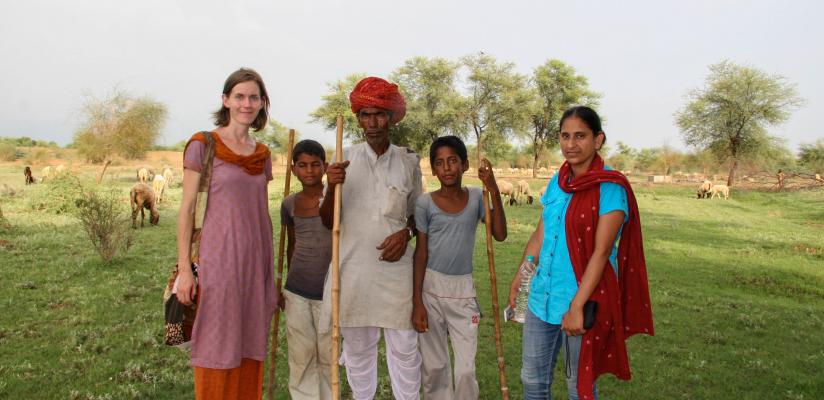Assistant Professor Mari Jyväsjärvi Stuart embarks on a research project on religion and ecology in India, supported by a Provost’s Internal Humanities Grant.
Mari Jyväsjärvi Stuart, Assistant Professor of Hinduism and South Asian Studies, is working on a new project investigating the connections Indian Hindus make between the human moral condition and the condition of the environment – specifically, global climate change and the chaotic local weather patterns it brings on.
Climate change has been called “the perfect moral storm,” and religion – as a powerful force and motivator in people’s lives that influences their worldviews, values, and relationship to the natural world – is at the eye of the storm, so to speak. In India, the moral and spiritual resonance of environmental issues is particularly rich, as Indian Hindu religious stories, myths, and practices have always been interwoven with natural phenomena and the very shapes of the landscape.
The primary questions driving this research are:
- What cultural and religious frameworks do Indian Hindus draw on when making sense of chaotic and unusual weather patterns brought on by global climate change?
- To what degree do they view environmental degradation as being due to human choices and actions—as opposed to, say, divine agency or fate?
- What moral and spiritual resources does the Hindu tradition offer in the face of the unprecedented challenges posed by a warmer and less predictable world?
During her most recent trip to India, Professor Stuart carried out interviews (in Hindi and in English) with environmental activists, educators, and farmers in the states of Uttarakhand, Rajasthan, and Andhra Pradesh. This semester, the Provost’s Grant allows her to focus on processing both the interviews and the textual-historical material relevant to her research questions, and to work on her first article based on her findings. Specifically, she will focus on community organizations and non-profits that incorporate cultural customs and religious practices – such as annual pilgrimages, shrines, and formal vow-taking – in spreading environmental awareness.
